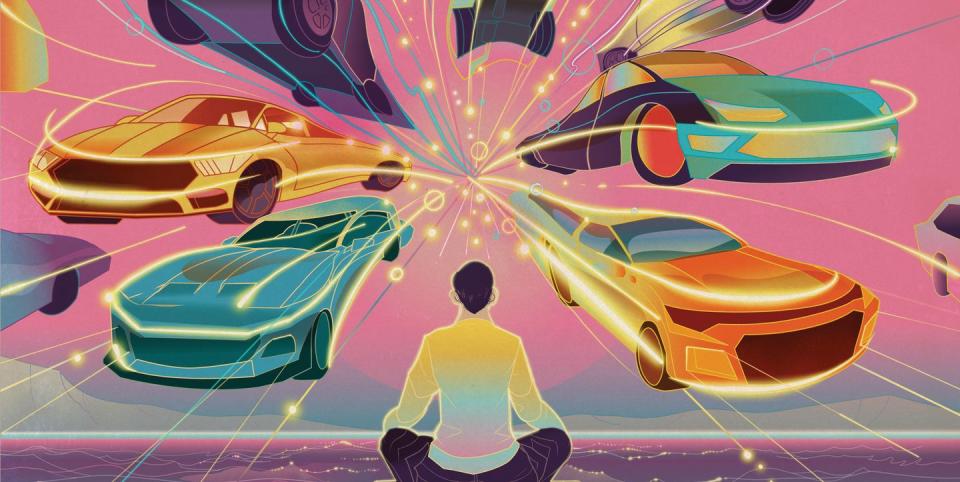Car Buying is Changing and All It Took Was a Pandemic: The Enlightenment

For ages, car dealers have stacked the deck against buyers. They've squelched competition with state laws that their lobbyists helped craft. They've fought attempts to share financial information with buyers, making negotiating unpleasant and difficult. Many of them won't even answer a simple email.
In the past decade, car dealers have haltingly, begrudgingly embraced changes in the retail landscape brought on by the internet. And that slow play would have continued but for a fat little microorganism that traveled the globe earlier this year and disrupted everything. The COVID-19 shutdowns this spring forced dealers to do something they'd been putting off: embrace technology and put buyers first.
"People's expectations changed overnight," said Larry Dominique, chairman and CEO of PSA North America, which is in the process of relaunching the Peugeot brand in the U.S. and Canada after a 30-year hiatus. People began online shopping en masse, ordering groceries, pet food, exercise gear, electronics, and even new cars. The coronavirus crisis raised awareness of what could be done remotely. "People have realized they can use these tools," Dominique said. "They know they exist, they know they work, and they know they're convenient."
Although buying a car and making a large investment will always carry some level of stress, the changing way of doing business promises to make car sales lower-pressure events compared with the past, with prices negotiated online, test drives taken alone without a pushy salesman in the passenger's seat, and financing and insurance sales taking place on the web. This new dynamic has the potential to benefit everyone, but especially women and people of color.
Car sales are steeped in decades of traditions, regulations, and hard-sell tactics. The National Automobile Dealers Association (NADA) was founded in 1917, just nine years after Henry Ford's Model T became available to the masses. NADA's first mission was to convince lawmakers that cars were as vital to the economy as horses and should be taxed accordingly. Since then, NADA and statewide dealer lobbying groups have influenced countless laws protecting the dealers' business interests.
With that safety net in place, many dealers have done a lot of talking about evolving, but very little has happened that Darwin would recognize as progress. We've seen baby steps, like putting inventory online so people can search to see which dealership has the actual car they want. But many dealers still refuse to answer emails. Often, shoppers are punished for emailing a dealer by being relentlessly spammed. Few dealers have figured out how to make negotiating painless, except for those that do no-haggle pricing. And then there's the agony of having to meet with the back-office finance and insurance salesperson, who can eat up an hour of time trying to sell you extended warranties, anti-theft devices, and paint and fabric protection.
But earlier this year, when dealers were forced to shut everything down, they proved they could adapt quickly. Here's what changed and how it could change car buying for good.
No-Pressure Buying
Lauren Starks has purchased three cars since the coronavirus outbreak slowed the world down—two used and one new. For the new car, a 2020 Toyota 4Runner TRD Pro, she opted to go with a dealer she already had a relationship with, because many dealers she'd emailed ignored her. Or her emails would go to an automated service and she couldn't get a real person to help. "I'm not sure which was worse," said the Greenville, South Carolina, resident. But once she connected with the dealer she'd already worked with, she was able to complete most of the process online, even the price negotiation.
This kind of buying process has been happening at upstart used-car chains for a few years. Unshackled by franchise regulations, used-car dealers have innovated quicker than new-car dealers. Carvana, for example, can sell a car online using very little human interaction. Customers can reach a sales associate if they need help, but they don't have to talk to anyone if they don't want to. No one works on commission, either, which keeps the pressure off.

"Buying a car is this tremendously exciting moment in people's lives," said Ernie Garcia, CEO of Carvana. "Unfortunately, the experience of buying it sours that experience."

 Yahoo Autos
Yahoo Autos 